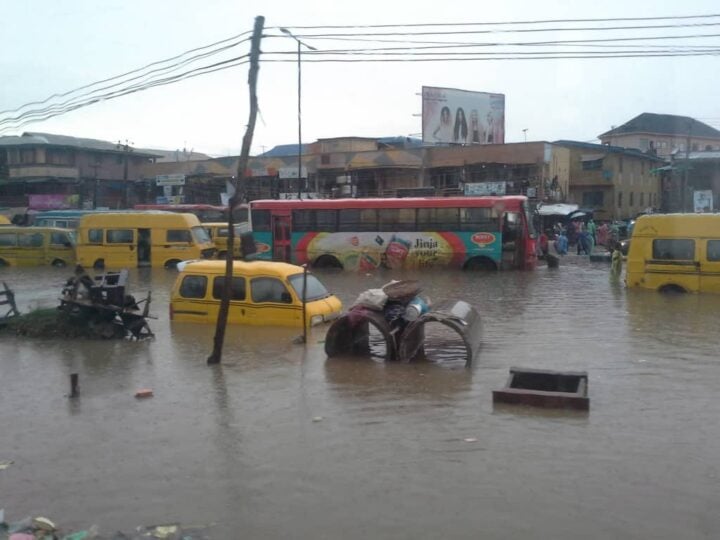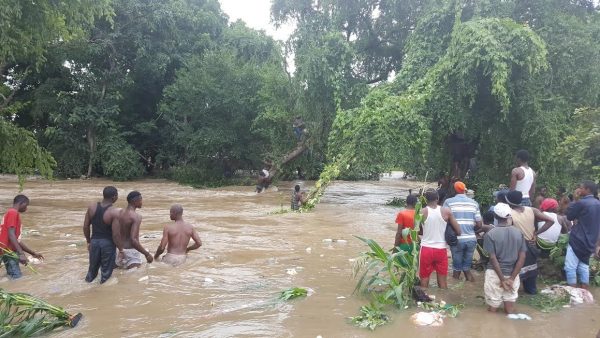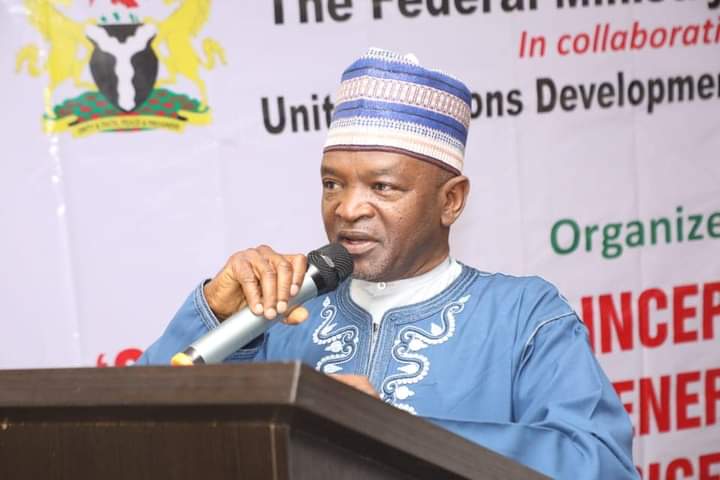The Nigeria Meteorological Agency (NiMet) has described the floods that ravaged Lagos on July 16 as “highly unfortunate”, saying it predicted the development on July 14.
Muntari Yusuf Ibrahim, general manager, public relations, NiMet, said another forecast was made on July 15 with respect to Lagos.
He said the July 15 forecast had indicated a heavy volume of “125 millimeter (mm) and 66mm of rainfall recorded at Oshodi and Ikeja weather stations” .
“The heavy rain that occurred on the 16th of July 2021 in Lagos state and environs, which wrecked a yet to be financially quantified havoc accompanied by flood with properties such as vehicles and buildings washed away, is highly unfortunate,” Ibrahim said in a statement released on Wednesday.
Advertisement
“It would be recalled that the Nigerian Meteorological Agency Forecast Office had on the 14th of July 2021 made a 3-day forecast and predicted, “cloudy skies are expected over the Inland and the coastal cities of the South with chances of morning rains over parts of Rivers, Cross River and Akwa Ibom states later in the day rains are anticipated over parts of Anambra, Ebonyi, Enugu, Ekiti, Oyo, Osun, Lagos, Bayelsa, Cross River and Akwa Ibom states”.
“On the 15th of July 2021, the forecast was made again with respect to Lagos state, this time there was development and the trajectory suggested that cloudy skies and rains are expected in the morning, afternoon and evening.
“These forecasts anticipated a rainy day in the coastal city of Lagos state for 16th July 2021. Consequently, the eventual heavy rainfall that occurred in Lagos state on the 16th of July 2021 was expected. Confirmation of this weather forecast is posted on our Facebook and on YouTube.”
Advertisement
The agency said the heavy downpour “indicated the presence of a very deep vertical extent of moisture and moisture laden winds up to about 3000m (700hPa) level in the atmosphere coupled with instability vortices and trough lines”.
These features, the agency said, are usually accompanied by continuous rainfall and the scale has been getting stronger spatially, and temporally leading to high impact and extreme weather events.
The agency said it would continue to monitor the weather and give alerts as and when necessary but advised that Nigerians should “follow us on Facebook and YouTube to monitor our forecast and avoid unpleasant calamities”.
Advertisement
Add a comment






